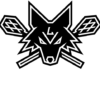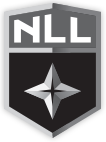The Bandits Frank Brown on the Values of Lacrosse Well Beyond the Box
Frank Brown will enter his fourth season in the NLL when play resumes this spring. Now on the Buffalo Bandits, Brown, one of a growing number of Indigenous players in the NLL, had a standout collegiate career at Hobart College before turning professional, playing outdoors in the MLL as well as box.
The NLL’s Devan Kaney recently caught up with Frank to talk more about his roots, the legacy of Indigenous peoples, and the game of lacrosse. You can watch the whole interview here, but several points to listen/watch for.
Brown on the increased voice Indigenous players are having in the game:
“You consider what Zed Williams has done this summer, consider what Lyle Thompson has been doing for a very long time. Randy Staats, Adam Bomberry is one of the best defensemen in the NLL. Warren Hill, Dougie Jameson, I could go on forever! And from top to bottom, you know, from professional to club level, everywhere you look is a good young native man who is very good at lacrosse and represents the game in the right way. Maybe all of the attention and the homage that’s being paid to our roots, you know, maybe that is a product of being so undeniable, which is okay, it’s whatever. If that’s the way we have to do it, then that’s fine.
As we become more empowered by the lacrosse community, we’re going to be more and more willing to confront and address publicly. I don’t think we’re having this conversation unless we’re getting the support that we have been getting throughout the last six or seven months.”
On the impact/challenges balancing culture and sport as an Indigenous player:
“I think the facts that are most impactful are the ones that you kind of shy away from, or at least I do. I never want to see myself as a victim of my own circumstances, right? Growing up on a reservation, playing Division 1 lacrosse, I talked about this just a little bit ago! What it’s like to walk the halls of a high school and be a native. A hundred goods are undone by one bad for a lot of kids, and that’s just the facts. Because there’s that instant jump to ‘oh yeah, just another Native kid’.
I think if you’re going to get to the heart of some of the circumstances that we face, you need to make a gear towards our youth. What about the way you were perceived growing up, or throughout your lacrosse career, do you want to be different for kids now? That is a major point of why a lot of us play the game.”
On the draw of the game to Indigenous Peoples:
“Who we are as people, our religion or ‘spirituality’ or whatever you want to call it, it’s all about streams of consciousness, it’s all about your place in the world around you. We learn life through experiences, you know what I mean? That is the focal point of our identity and the space we occupy on this earth. Circling back, every time I put on the jersey or I pick up a stick, I feel the energy of that kid that fell in love with the game.
“The game of lacrosse is given to our people as an alternative to war. If you look at human history, it’s all about dominance, it’s all about conquering, it’s all about erasing folds. And we settled on a mold where it wasn’t about killing people. Our conflict resolution was a lacrosse game. Think about that, think about the ideologies that go behind constructing that as a part of your society. I love that. I love the history of lacrosse.”
On the challenges of growing up on a reservation:
“Residential schools, and in the [U.S.], they call them the tribal boarding schools, those things were open till the 70’s and 80’s. Those are places where kids were literally taken from their homes and forced to assimilate. And if they didn’t, they were beaten and molested. These are real f***ing things.
Imagine having that trauma in your life? There are people, in my community, who have been forcefully removed from their traditional lands. Army Corp of Engineers came in and burned all their houses, put a damn up, and flooded their lands. That same person, maybe, had a sibling that was taken from their family growing up and put into one of these schools. And stripped of everything they should know about themselves and then put back on the reservation. Like a termination policy. How do you think that impacts a person’s ability to live in this world? To raise kids? There is just a lot of pain in our communities. And you don’t understand what this medicine is until you’ve been a little kid who’s never seen your grandma smile or your grandpa smile. But, that time he’s in the backyard with you teaching you how to play. And that time you’re on the field and you’re scoring, and you can see this is all real things.”
Our goal with this series is to continue to lift the unique stories of our Indigenous players to a higher, important level. After all, lacrosse is their national game, and we can have no better ambassadors for the sport than these athletes.














